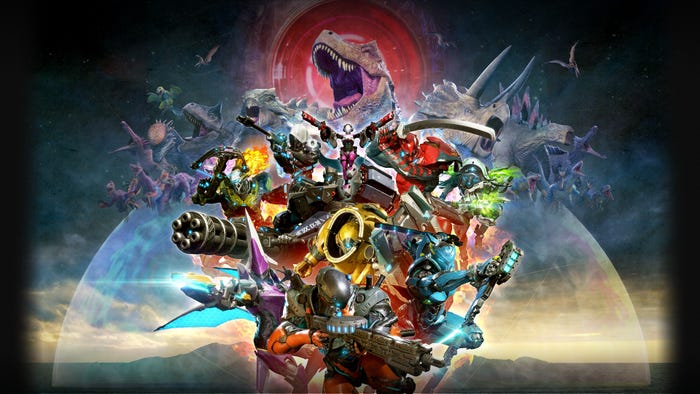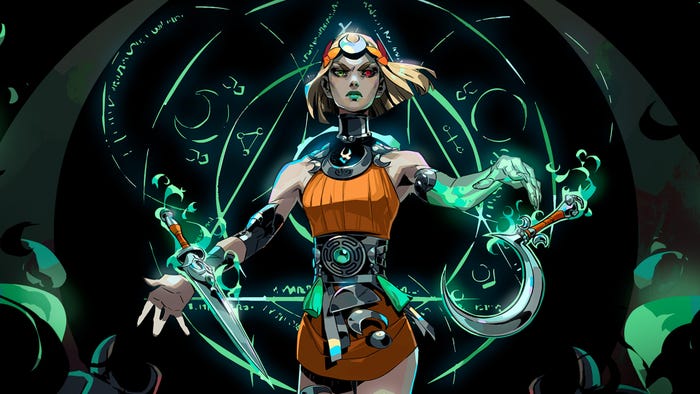
Featured Blog | This community-written post highlights the best of what the game industry has to offer. Read more like it on the Game Developer Blogs.
Dispelling Some Myths for the Indie Studio Newbie
In an article aimed at the newbie developer looking to launch a commercial project, I outline some of the common misconceptions that people have around these kind of projects, such as "I don't need to do any marketing" and "People might steal my idea"

Firstly a quick overview of my background, I’m the co founder of a company called Camshaft Software, who is making a game called Automation: The Car Company Tycoon Game. (www.automationgame.com) It’s still in development but runs a similar sales model to Minecraft, with content being released to customers as it’s completed.
As someone who is quite a few years into the “Indie Studio Journey” and who now runs what could be termed a “Moderately Successful” indie studio (we make enough preorder sales to pay ourselves a wage, cover our own expenses and employ a few people for contract work) I increasingly find myself encountering people who are just starting out in indie games dev, but want to make a start as a commercially viable developer.
This is great, and just the kind of enthusiasm we need, particularly in an era where quite a few larger studios are shutting down and we need small and innovative companies more than ever.
The problem is that a lot of these keen individuals don’t have a clear idea of the realities of turning indie games into a business rather than just a hobby, and there is a fairly limited set of resources for finding that kind of information out, along with what I’d term the “Notch Myth��” that they’ll just be able to put a title out there and it’ll automatically succeed, which tends to ignore the fact that in the case of Minecraft, the developer had a lot of prior experience as well as a very commercially appealing idea and a healthy dose of “The right place at the right time”
As such I thought it might be an idea to layout what I’d consider the major misconceptions of new developers coming into indie development. I’m not professing to be an expert, but these seem to be the things that newcomers tend to be unaware of.
“I’ll have a place to sell my game”
Ok, so you’ve made a great quality game, it’s really polished, it’s got some pretty fun game mechanics and everyone you’ve got to test it reckons it’s pretty fun. Now you’re all sorted for commercial success and critical acclaim, right? Yeaaah, not so much.
First thing to think about is WHERE you’ll be able to sell it. In order of most to least likely, I’d be thinking you’ll be able to do the following:
If it’s a mobile game, put the game onto it’s main marketplace (App Store or Google Play)
Put the infrastructure in place to sell the game yourself from your own website
Get your game on some small sales portals like Desura or Gamers Gate
Get your game Greenlit onto Steam
Get your game onto Steam with a Publisher
Get your game into Boxed Distribution with a Publisher
It’s very much worth doing your research about this early in the development process and starting to build relationships with the right people very early on, as it’s going to be painful if you get to the end of development and have no good way of selling your product. We’ve mostly relied on sales through our website, but we’re some of the way along the process for most of the other options too.
This isn’t a huge hurdle, but you need to be thinking about it all along the process of development
“I don’t need to do any Marketing”
You do. So much more than you think you do.
Marketing sometimes seems to be a considered a bad word among indie developers, but it’s not as evil as it sounds. It’s also critical if you actually want anyone to know that your game exists.
It’s not just the aspects of marketing that you’d think of in AAA development like huge billboards and TV ads, the kind of marketing you need to do as an indie is more about building a relationship with the games press, making sure you always have fresh trailers, screenshots and development blogs out there throughout the whole process of game development.
It’s NEVER too early to start marketing and at the very least you should be maintaining a DevBlog, a Youtube channel with as many good quality development and gameplay videos as you can muster, a regularly updated facebook page, the lot.
We’ve worked hard on Automation to get development updates out as often as possible, show off every cool thing we’re working on, and to build up a community from day one, and for us its paid off, we’re still a few years off release but already are getting healthy preorder sales and have a community of about 16,000 on our forums. Yes it’s hard work, and yes you will need to dedicate some time in almost every day to keep everything up to date, but it’s the best way you can market short of a multi-million dollar budget.
Also, be nice to the games press, give them free demos, well written and nicely formatted press releases with good screenshots, buy them a beer if you run into them at an event. It’ll pay off far more than the effort it cost you, as good media coverage is worth far more than any banner advert.
“But, If I tell people about my idea before it’s ready, they’ll steal it”
Frankly, no. No they won’t. Anyone competent enough to use your idea is too busy with their own. Besides, ideas are cheap, you should have plenty of them. And they change. No finished game ever matches the idea that spawned it.
Besides, no-one loves your game idea as much as you. They’re not going to steal it until you’ve been successful with it. And then? Well, you’ve already reaped your own rewards and should now be hard at work on the next idea.
The risk is tiny, and the harm you’ll do by hiding your game is immense.
Jill Duffy’s article on this point is worth a read if you want further information. http://www.gamasutra.com/php-bin/news_index.php?story=15688
“People will buy my game”, OR: “Build it and they will come.”
This is, in my opinion the most important point of all, far too many people think that all you need to succeed in the games business is competently developed game, but in my opinion that’s only part of the battle.
What you really need to ask, why would anyone want to buy your game? This question sounds harsh, but its important.
It could be an entirely competent retro platformer, a well polished FPS or what have you, but why would Joe Public stop in his endless scrolling through the Steam store list stop on YOUR game and decide to fork over his cash?
Here are some possibilities that might help your game stand out. Does it have a unique gameplay mechanic that other games don’t offer? Does it reboot an old game concept that people loved but haven’t had any new interpretations of in a long time? (Also applies to our Automation, and to things like Planetary Annihilation or Gamebook Adventures)
Is it a niche simulation of a field that doesn’t have any other good simulators? (This has worked well for us, and Farm Simulator has sold Millions of units). Are the visuals to AAA standards (Hint, they’re not), if not does it have an interesting aesthetic that’s likely to draw someone’s eye, or at least an attractive and well designed look? What can players get from your game that they can’t get elsewhere?
Remember that the buyer knows nothing of the work that went into the game, nothing of how lovingly crafted some of the details may be. They know only if the concept is interesting to them, if the looks of it draw their eye, and as much about the gameplay as you can get into their head in a 30 second or so trailer, and if at point your game doesn’t stand out in some way from everything else you’re pretty much screwed.
This point is CRITICAL, start thinking about it from the moment decide to make a game, from the moment you put pen to design doc, and if you can’t think of any really damned good reasons why your game will stand out, your idea either needs more work or needs throwing in the bin.
“I have all the skills required to make and sell a great game”
Probably not, and infact I’d say no one person actually has ALL the skills required to make a game at a commercial standard by themselves.
Before you embark on your project, think about the following, and if you can truly do these things at a level that customers will be happy with.
If you don’t have a skill you’ll have to either A: Find someone who does who you can afford, or who wants to be part of your team, B: Learn that skill yourself, or C: Work to your strengths! Design a game that doesn’t require that skill (where possible)
Environment Art (usually hard to avoid)
Character Art and Animation (Sometimes possible to avoid, we did avoid it)
UI Art
Sound Design
Music
Production, Documentation and Scheduling
Marketing/Press Communication
Game Design and Balancing
Business Skills/Accounting/Legals
We use a combination of all these tactics in our own project, I think this gives a realistic overview of what you could expect to have to do to get the skills you need on your project.
In our own company we already had some decent Environment Art skills. We made a game concept that didn’t use characters or character animation, partially because none of us are any good at it! UI Art we contracted out at first, but after a long learning curve started to teach ourselves.
Sound Design we outsourced to a company who specialized in car engine sounds rather than reinvent the wheel ourselves and to a local sound designer for UI & ambient sounds, though we’re slowly teaching ourselves enough sound knowledge to tweak what others do for us at least, which is useful if we need to do minor reworks of anything.
Music we’re hopeless at, so that is contracted out to an ex co-worker who had just moved into the music business after years of it as a serious hobby.
Production and documentation we fumbled through ourselves, but now have a Producer who joined our team out of the love of the project and now has been working for us for 2 years as a close to full time employee. He wasn’t exactly skilled as a games producer, but being a physics PhD and generally an organized German means he’s provided far higher quality documentation and production support that we’d ever be able to do ourselves. Sometimes you’ve got to improvise to get the skills you need!
Game balancing and game flow is easy to underestimate and basically is a science on its own, it can take a lot of time and a lot of testing to get write, as the necessary feedback cycles are slower and involve more individuals than for example bugfixing. The best advice I can give is to get testers playing early prototypes as soon as you possibly can, the sooner you can start correcting design & balance issues the less ingrained they’ll become. In our case we’re lucky to have our producer running a beta testing team and slowly teaching himself to be an expert in the field!
Marketing can be outsourced somewhat, but you still need to build skills when it comes to communicating with your players, writing good press releases etc. For our own marketing we’ve pretty much taught ourselves what to do, learning from the example of what other successful small studios have done. We’ve found that the few marketing companies we’ve approached don’t really have many new ideas for us beyond the basics of sending out press releases and paying for adverts.
Business skills you’ll have to teach yourself to some extent, but as its a far more generic skill than most things in games you’ll have a lot of help at your disposal. Legals and Accounting are solved by paying a Lawyer and an Accountant, simple as that!
“It can be both my dream project that I’m making for myself and also a commercial success”
Yes, but with some caveats.
Decide from day one what your project is for, if its aimed at being a viable product it can still be your dream project (that’s what Automation is for us), but you must be willing to accept the fact that along the way you’re going to be making some sacrifices that might make the game LESS like your “Vision”, less enjoyable for yourself, but better for your players or more marketable, this is a reality of making games for profit! Remember, when you’re doing this for a living you’re there to make a game your customers enjoy and are willing to pay for.
If you have a really strong “Artistic Vision” that you really want to stick to, then it’s probably best you take the project on as just a hobby, that way you can make it exactly as YOU want without having to worry if it’ll sell or be liked by others.
“I don’t need to dedicate all my time and effort to this project“
If you want to be in with a good chance of success, I’d say that you DO need to dedicate as much time and effort as you possibly can, maybe more.
If you have a full time job it’s still possible to get an indie project off the ground, but don’t expect to have much of a social life, or any other hobbies. If you really want to get something off the ground you’re probably going to have to spend quite a while with this as the entire focus of your life.
A clear after work schedule, a hell of a lot of stubbornness, bloody minded dedication and a tolerant partner are very important here, and if you’ve got a full time job and 3 kids, you’re probably screwed. Sorry.
If your game takes off you’ll be able to start to reclaim your social life, but while you’re getting your first project off the ground most of the human contact you’ll have time for is likely to consist of game developer meetups and conferences(which you should NEVER stop going to, as per the next point)
“I can develop on my own in my basement and not network with other industry people.”
Well, this is kind of true. You CAN but you shouldn’t.
For us so many ideas, solutions to technical problems, talented staff/contractors, media contacts, business opportunities and many other great things have come out of simply going to the local IGDA meetings for a few beers or attending a games conference. The value you’ll reap out of these events can be far above what you’d expect. And a very worthwhile tradeoff for the few working hours they might take out of your day.
“I’ll get rich and famous”
No, you probably won’t, but with a lot of dedication, a fair amount of skill and a bit of luck you could at least get in the position where you be financially comfortable, keep making great games, maybe hire some talented people and run a great little studio, and damn it if that isn’t a great place to be.
Read more about:
Featured BlogsAbout the Author(s)
You May Also Like













